Filter by

Gods of the sea: whales and coastal communities in northeast Japan, c.1600-2019
Challenging common portrayals of Japan as a centuries-old whaling nation, Fynn Holm shows that many coastal communities in early modern Northeast Japan believed whales to be the incarnation of the god of the sea that brought fish to the shore, leading to violent anti-whaling protests that shocked the country
- Edition
- -
- ISBN/ISSN
- 9781009305532
- Collation
- ix, 224 pages; illustration
- Series Title
- Cambridge Oceanic Histories
- Call Number
- 639.2 HOL g

The Invasion of The South: Army Air Force Operations, and the Invasion of Nor…
Between 1966 and 1980, the War History Office of the National Defense College of Japan (now the Center for Military History of the National Institute for Defense Studies) published the 102-volume Senshi Sōsho (War History Series). The present book completes the trilogy of English translations of the sections in the Senshi Sōsho series on the Japanese operations against the former Dutch East I…
- Edition
- 34
- ISBN/ISSN
- 9789400604100
- Collation
- 519p
- Series Title
- -
- Call Number
- 940.544952 REM
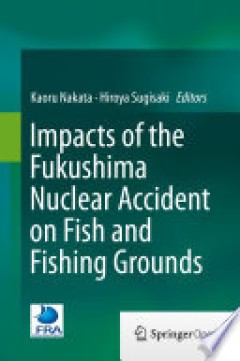
Impacts of the Fukushima Nuclear Accident on Fish and Fishing Grounds
As a result of the Fukushima Dai-Ichi Nuclear Power Plant accident in March 2011, a large volume of radionuclides was released into the environment, thus contaminating marine and freshwater systems. The Fisheries Research Agency has conducted research beginning soon after the accident. Our research addressed the contamination processes of radionuclides (mainly radiocesium) through water, sedime…
- Edition
- 1
- ISBN/ISSN
- 9784431555377
- Collation
- XI, 238p
- Series Title
- -
- Call Number
- 571.954 SUG
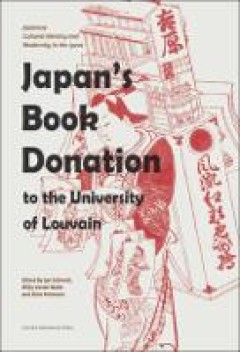
Japan's book donation to the University of Louvain : Japanese cultural identi…
Companion to the exhibition “Japan’s Book Donation to the University of Louvain”, KU Leuven University Library, 28 October 2022 - 15 January 2023 With more than 3,000 titles in almost 14,000 volumes, the 1920s Japanese book donation to the University of Leuven/Louvain constitutes an invaluable time capsule of Japan’s pre-modern culture in all its diversity and richness. A century on, th…
- Edition
- -
- ISBN/ISSN
- 9789461663283
- Collation
- -
- Series Title
- -
- Call Number
- 950 JAP
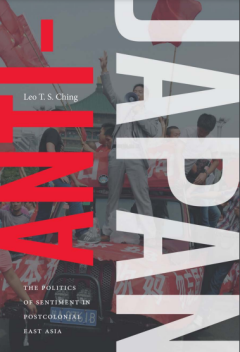
Anti-Japan
In August 2017, four Chinese men dressed in Second World War Japanese military uniforms posed at the Continental Bank Warehouse in Shanghai where Chinese troops fought the Japanese imperial army in 1937. In February 2018, two different men, also in Japanese military garb, struck various poses in front of a memorial site on Zijin Mountain in Nanjing where Chinese civilians were murdered by th…
- Edition
- -
- ISBN/ISSN
- 9781478001881
- Collation
- 176p
- Series Title
- -
- Call Number
- 303.4825052 CHI a
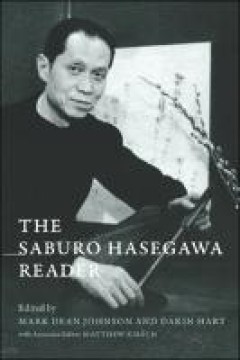
The saburo hasegawa reader
Published on the occasion of the 2019 exhibition “Changing and Unchanging Things: Noguchi and Hasegawa in Postwar Japan,” The Saburo Hasegawa Reader encompasses a selection of writings by the Japanese artist, theorist, essayist, teacher, and curator Saburo Hasegawa (1908–1957), translated into English for the first time. Credited with introducing abstract art to Japan in the 1930s, Hasega…
- Edition
- edision 12
- ISBN/ISSN
- 9780520970922
- Collation
- xxv. :ill. ;166 p.
- Series Title
- -
- Call Number
- 709.2. THE j

Alexander Williamson : a victorian chemist and the making of modern Japan
Alexander Williamson was professor of chemistry at UCL (1849–87) and a leading scientist of his time. He taught and cared for visiting Japanese students, thereby assisting them with their goal of modernising Japan. This short, accessible biography explores his contribution to nineteenth-century science as well as his lasting impact on Japanese society. In 1863 five students from the Chōsh…
- Edition
- -
- ISBN/ISSN
- 9781787359314
- Collation
- xiii, 133 p. ill;
- Series Title
- -
- Call Number
- 540.92 ALE H
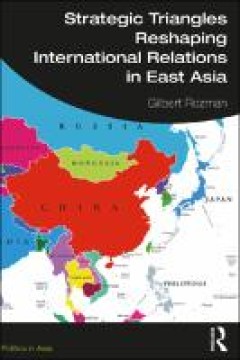
Strategic Triangles Reshaping International Relations In East Asia
Rozman shows how East Asia’s international relations over three decades can be best understood through the lens of triangles, analyzing relations between the key nations through a series of trilateral relationships. He argues that triangles present a convincing answer to the question of whether we had entered a new era of bipolarity like the Cold War or an age of multipolarity. Triangulation …
- Edition
- -
- ISBN/ISSN
- 9781000613957
- Collation
- -
- Series Title
- -
- Call Number
- -
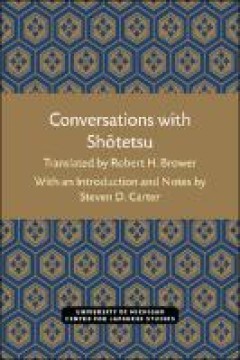
Conversations with Shōtetsu
Shotetsu monogatari was written by a disciple of Shotetsu (1381–1459), whom many scholars regard as the last great poet of the courtly tradition. The work provides information about the practice of poetry during the 14th and 15th centuries, including anecdotes about famous poets, advice on how to treat certain standard topics, and lessons in etiquette when attending or participating in poetry…
- Edition
- -
- ISBN/ISSN
- 9780472901579
- Collation
- ix, 237 p.
- Series Title
- -
- Call Number
- 895.6124 CON R
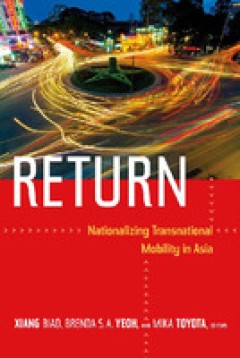
Return; Nationalizing Transnational Mobility In Asia
Since the late 1990s, Asian nations have increasingly encouraged, facilitated, or demanded the return of emigrants. In this interdisciplinary collection, distinguished scholars from countries around the world explore the changing relations between nation-states and transnational mobility. Taking into account illegally trafficked migrants, deportees, temporary laborers on short-term contracts, a…
- Edition
- -
- ISBN/ISSN
- 9780822377474
- Collation
- Knowledge Unlatched (KU)
- Series Title
- -
- Call Number
- -
 Computer Science, Information & General Works
Computer Science, Information & General Works  Philosophy & Psychology
Philosophy & Psychology  Religion
Religion  Social Sciences
Social Sciences  Language
Language  Pure Science
Pure Science  Applied Sciences
Applied Sciences  Art & Recreation
Art & Recreation  Literature
Literature  History & Geography
History & Geography